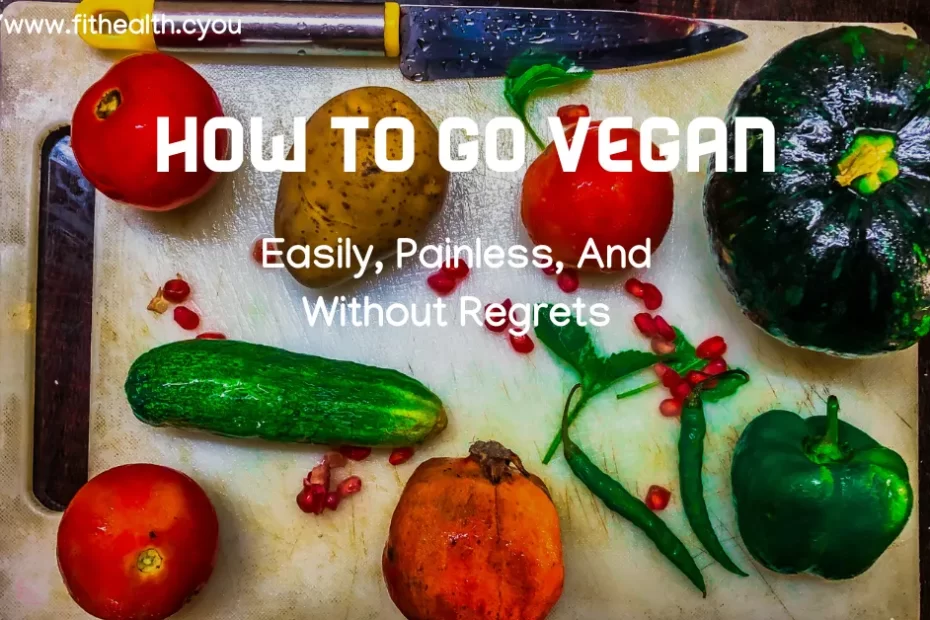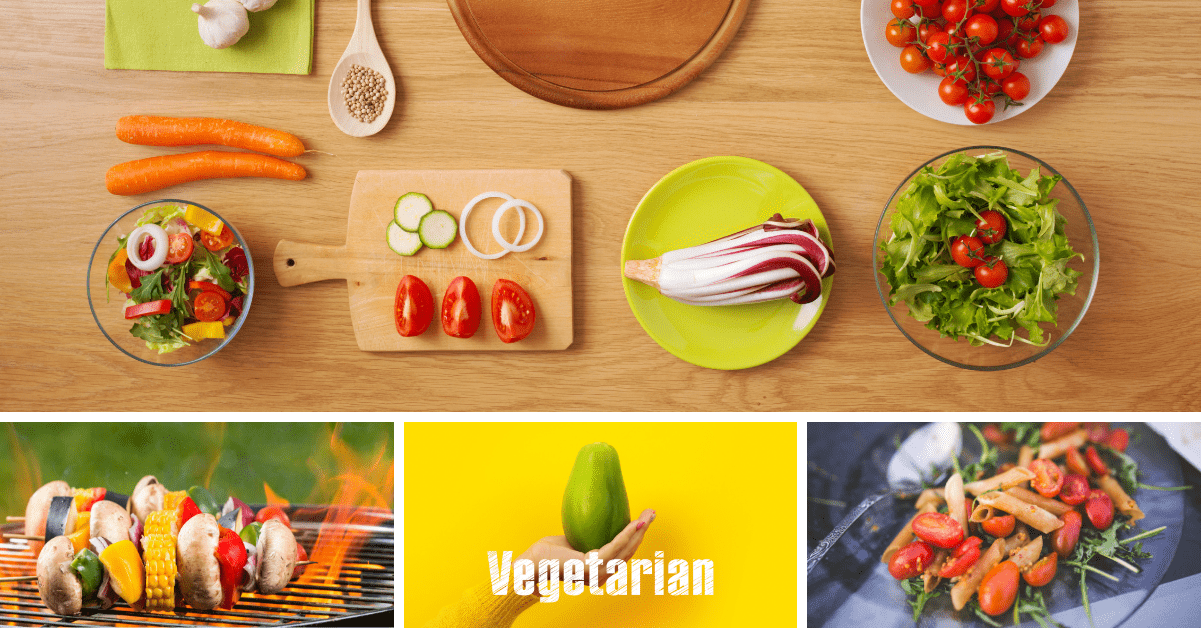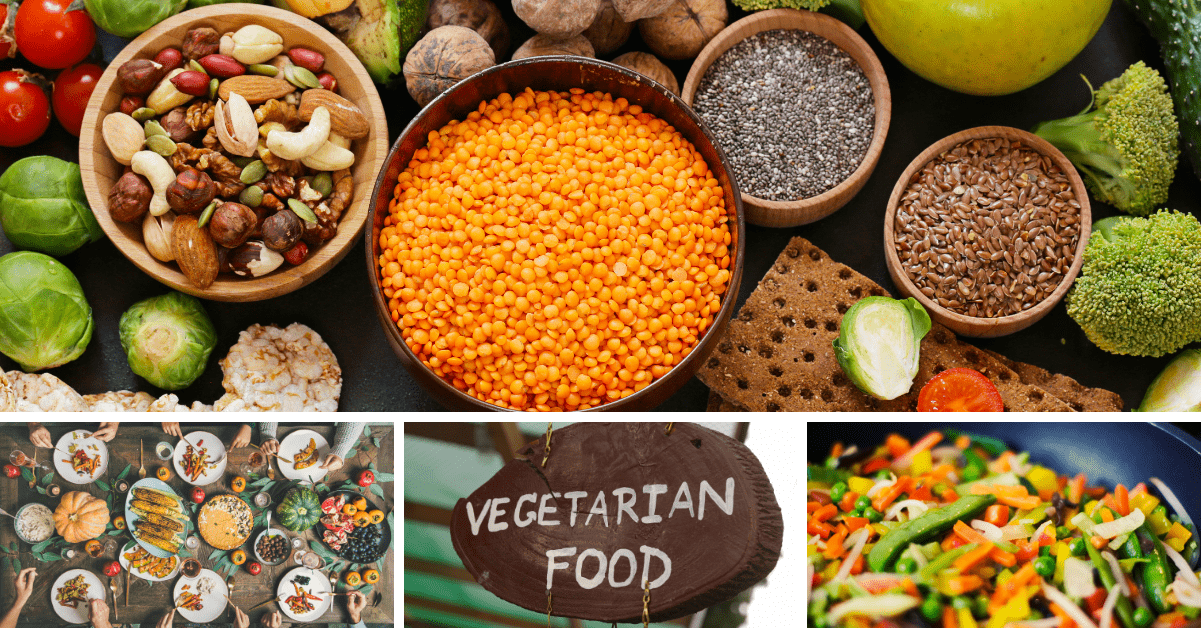Becoming a Vegetarian, it is a big decision to make a real lifestyle change. Being a vegan means giving up a lot of things and straying from the norm. But there are real benefits to becoming a vegetarian and living the vegetarian lifestyle.
-
Veganism vs Vegetarianism
- #1 - Open mind to the vegan system
- #2 - The Vegan Learning Process
- #3 - Create a menu plan around your new eating choices
- #4 - Don't go to the extreme
- #5 - Vegetarian diet is a diet in abundance
- #6 - Vegan alternatives
- #7 - Proteins and Carbohydrates
- #8 - Be easy on yourself
- #9- Discover new vegetarian recipes
- By Choosing A Vegan Diet, The Following Health Benefits Can Be Yours
- Recommended Articles:
More and more people in today’s society are adopting vegetarianism. Many people are realizing that a healthy vegetarian diet is much better for them. Healthy vegan meals can replace those unhealthy meat-laden ones, without having to give up taste.
Healthy vegetarian eating can be just as satisfying as those common ones full of meat and meat by-products.
Whatever your reasons for becoming a vegetarian, living the vegan lifestyle is a good choice. If you do it correctly, becoming a vegetarian can mean that you have a lower risk for certain diseases, like heart disease or some forms of cancer. Becoming a vegetarian can help you keep control of your weight, again a healthier choice. It can help you control your levels of cholesterol as well. There are many benefits of being vegetarian.
Veganism vs Vegetarianism
Veganism and vegetarianism are two different dietary practices that involve the exclusion of meat from one’s diet. While they share some similarities, there are distinct differences between the two. Let’s explore the comparison of veganism vs vegetarianism:
Definition:
- Veganism: Vegans avoid the consumption of all animal products, including meat, poultry, fish, eggs, dairy products, and honey. They also refrain from using or wearing any products derived from animals, such as leather, fur, or cosmetics tested on animals.
- Vegetarianism: Vegetarians typically exclude meat and sometimes fish from their diet but may include other animal-derived products such as eggs, dairy, and honey.
Reasons for Adoption:
- Veganism: People adopt veganism for various reasons, including ethical considerations regarding animal rights, environmental concerns, and health-related benefits.
- Vegetarianism: Vegetarians may choose their dietary practice for similar ethical, environmental, or health-related reasons. Some may also adopt it due to cultural, religious, or personal preferences.
Food Choices:
- Veganism: Vegans focus on a plant-based diet that includes fruits, vegetables, legumes, grains, nuts, and seeds. They replace animal-based products with plant-based alternatives such as soy milk, almond milk, tofu, tempeh, and plant-based meat substitutes.
- Vegetarianism: Vegetarians include a wide range of plant-based foods in their diet but may also consume animal-derived products such as eggs, dairy, and honey.
Health Considerations:
- Veganism: A well-planned vegan diet can provide all the necessary nutrients for good health, including protein, iron, calcium, and vitamins. However, vegans need to pay attention to sources of vitamin B12, which is primarily found in animal-based products.
- Vegetarianism: Vegetarian diets can be nutritionally balanced and provide essential nutrients if well-planned. However, vegetarians should also ensure they meet their nutritional needs, especially regarding protein, iron, and vitamin B12.
Flexibility:
- Veganism: Veganism is a strict dietary and lifestyle choice that extends beyond food choices. It often involves avoiding animal-derived products in clothing, cosmetics, and other areas of life.
- Vegetarianism: Vegetarianism offers more flexibility, allowing individuals to choose the extent to which they exclude animal products from their diet and lifestyle.
Forget what I heard about vegan being tasteless, or it’s too expensive, or you won’t get enough nutritional value, or being too complicated to adopt in your life. Before starting the journey, please try to answer the following questions yourself.
Why do you want to be a vegan? Is it for your health? For the environment? For animals?
#1 – Open mind to the vegan system
Start the vegan system with an open mind and never stop learning. The key to sticking with any decision is to keep yourself informed. The more you read and listen to materials on the health benefits of different foods and the vegetarian lifestyle, the more motivated you will be to follow it, especially in the beginning stages.
#2 – The Vegan Learning Process
You will gradually learn about vegetarianism with time, and you’ll start adopting other life systems later if they are compatible with you and suit you.
#3 – Create a menu plan around your new eating choices
Devote extra time to preparing meals, at least during the first weeks. You need to know how to prepare healthy vegetarian meals. For information and resources, you can read many books on vegetarianism or turn to the Internet.
#4 – Don’t go to the extreme
When you are at the beginning, don’t go to the extreme and deprive yourself. A complete vegetarian diet means you often eat well most of the time. Do not deprive yourself of enjoying good meals at times. Meals like banana cake, cupcakes, or vegan cookies are all delicious.
#5 – Vegetarian diet is a diet in abundance
To be vegetarian is not to be in a starvation system. The vegetarian diet is a diet of abundance. When people think about vegetarianism, they often focus on things they can’t eat, such as chicken, meat, fish, cheese, and yogurt.
Let’s focus on all the things that we will add and gradually let these additions replace the old stuff; add plant-based milk products such as soy milk and yogurt, almonds, rice, and coconut, more whole grains, fruits, and vegetables, more nuts and seeds, legumes, lentils, and tofu. You got idea
#6 – Vegan alternatives
If you are new to the vegetarian diet, take advantage of vegan meat alternatives (such as balls and soy protein), some vegetarian meatballs, ground vegetarian meat, and vegan chicken to help you switch vegan. Gradual increase in the number of legumes to reduce reduces indigestion and gas problems.
#7 – Proteins and Carbohydrates
You must include foods to ensure you get all the nutrition and vitamins your body needs to stay healthy and in optimal condition.
When you add lentils and legumes to your meals as sources of protein and carbohydrates, take advantage of all your options. Start slow.
#8 – Be easy on yourself
Be easy on yourself and those around you. Eating an occasional piece of ‘whatever’ is okay. Don’t let anyone make you feel guilty for occasionally indulging. Also, go easy on those around you who have not yet decided to transition to a vegetarian eating plan.
#9- Discover new vegetarian recipes
You will discover a new world of récipes. The world of recipes is endless on the net. Find them on Pinterest and YouTube, which provides thousands of delicious vegetarian recipes. Write vegan recipes, and you will find more than you can imagine.
By Choosing A Vegan Diet, The Following Health Benefits Can Be Yours
- A Healthier Heart: Harvard researchers tracked the health habits of about 110,000 people for 14 years and found that the higher folks’ intakes of fruits and vegetables, the lower their chances of developing cardiovascular disease.
- Weight Loss Results: Many studies suggest that vegans consume fewer calories, thus weigh less, and have lower body mass indexes than non-vegetarians.
- More precise, Smoother Skin: Cutting back on animal products also means skipping much of their saturated fats, notorious for clogging pores.


